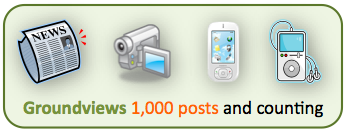I’ve tried to understand this war, and failed.
It’s made me feel rather stupid – this inability to wrap my head around 30 years of horror, why it all started and who is to blame. Everyone seems to talk about it with such ease – like it’s the simplest thing to understand. As if it’s effortless to take one particular view and stick to it. I listen to the sophisticated talk of politicians, of family, of friends and marvel at the sureness of their convictions with frustrated envy.
It could be my limited understanding of politics and history that’s to blame. I have tried to remedy this over the past year or so, and despite accusations to the contrary, I hope I am making some headway. The more I learn, though, the more that yawning chasm of untapped knowledge stretches. I wonder if I will ever conquer it. And if I do, I wonder what that will mean.
Because, when you think about it, is there any such thing as understanding the war? Is there any way to rationalize what happened? Every gun shot, every limb torn away, every life snuffed out, every radicalized mind, every spirit shattered – how can we justify those things? How can we say, “it had to happen”? How can we blame it on a few people, sit back and feel better about ourselves?
Politics has never been my strong suit because it simply doesn’t interest me very much. There. I said it. In my younger days, Sri Lankan politics meant a bunch of men drinking together and talking about how they would run the country if they were in charge. Whenever we had dinner parties, the men would invariably drift together and my mother would roll her eyes, look at me and whisper “there they go again, armchair governing” and I would giggle and understand. Today, politics to me hasn’t changed all that much – a bunch of important people (mostly men) talking about important things but never getting terribly far with it in the end.
I’ve heard hundreds of opinions about the war. Each one is like a thumbprint – somehow unique to the individual espousing that view, born of their personal experience and learning of the conflict and also their own conceptualization of right and wrong.
Right. Wrong. It sounds black and white but in reality its layer upon layer and shade upon shade of grey. A story doesn’t just have two sides; it is kaleidoscopic.
A soldier in the thick of battle affects, in some way, the entire course of the conflict – in life and in death. The same can be said for the child combatant, the suicide bomber, the politician, the average civilian. We have all shaped and destroyed our country in some way. A harsh word backed by racial hatred, a casual, stereotyping joke, could take a worse toll on the country in the long term than a murderous gunshot.
This leaves me with a dilemma I can’t seem to shake.
I cannot tell who is right and wrong when it comes to this war. I cannot call one side my own and label the other ‘enemy’. I cannot condemn violence by some but defensively justify violence perpetrated by others. My sorrow is as piercing whether I am looking at a soldier or a combatant or a civilian caught in between. My anger is just as strong and indignant towards those who placed them in those roles: out there on that battlefield, fighting to kill, fighting to survive.
But against whom can I direct this anger? Aren’t we all even a little to blame? What use is blame anyway, now that the war is over? And what use is the end of the war when we’re still indulging in the politics of blame and personal gain?
*
I have tried to understand this war, and largely failed. But here’s what I’ve got so far:
Death is horror.
Killing is horror.
A life ruined – no matter whose it is – is horror.
Maybe that is as a good a start as any.

